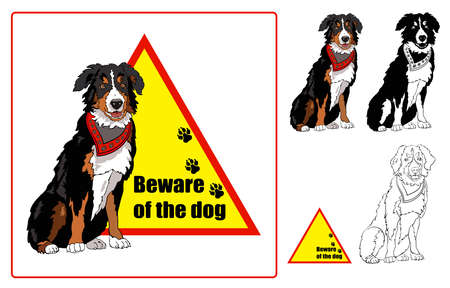Introduction to Pet Health in the UK
Pet ownership is a cherished aspect of life in many British households, with millions of families sharing their homes with cats, dogs, rabbits, and other beloved animals. The health and wellbeing of these pets are not only crucial for their happiness but also for the overall harmony and safety of the home environment. In the UK, where pets often become integral family members, maintaining their health is a responsibility taken seriously by responsible owners. Disease prevention is at the heart of good pet care, as it helps to minimise suffering, reduce veterinary costs, and protect public health. By understanding the importance of preventative measures such as vaccinations and regular veterinary checks, British pet owners can ensure their companions lead long, healthy lives while preventing the spread of common infectious diseases within communities.
Common Infectious Diseases Among UK Pets
In the United Kingdom, both cats and dogs are vulnerable to several infectious diseases that can have serious health consequences if left unaddressed. Early identification and prevention are vital, not only for your pets wellbeing but also to reduce the risk of transmission within the community. Below is a summary of some of the most prevalent diseases affecting UK pets:
| Disease | Species Affected | Symptoms | Prevention |
|---|---|---|---|
| Parvovirus | Dogs | Vomiting, severe diarrhoea, lethargy, dehydration | Vaccination, good hygiene practices |
| Kennel Cough (Canine Infectious Tracheobronchitis) | Dogs | Dry cough, sneezing, nasal discharge, mild fever | Vaccination, avoiding exposure in high-risk areas like kennels |
| Leptospirosis | Dogs | Lethargy, vomiting, jaundice, kidney failure | Vaccination, avoiding stagnant water sources |
| Feline Leukaemia Virus (FeLV) | Cats | Pale gums, weight loss, recurrent infections, lethargy | Vaccination, keeping cats indoors or supervised outdoors |
| Feline Calicivirus & Herpesvirus (Cat Flu) | Cats | Sneezing, nasal discharge, mouth ulcers, eye inflammation | Vaccination, minimising stress and contact with infected cats |
Many of these diseases are highly contagious and can be life-threatening. Parvovirus is notorious among puppies and unvaccinated dogs for its rapid progression and high fatality rate. Kennel cough often spreads where dogs congregate, such as boarding facilities or dog shows. Cats are particularly at risk from FeLV and cat flu viruses; both can cause chronic illness and reduce quality of life. Regular veterinary check-ups combined with a comprehensive vaccination schedule are the best defence against these common threats in the UK. By taking proactive steps, you help ensure your pet enjoys a healthy and happy life.

3. The Role of Vaccination in Preventing Disease
Vaccination plays a vital role in safeguarding the health of pets across the UK, not only by protecting individual animals but also by contributing to the wider community’s wellbeing. When a pet is vaccinated, its immune system learns to recognise and fight off specific diseases, reducing the risk of severe illness if exposed in the future. More importantly, widespread vaccination helps prevent outbreaks, creating what is known as “herd immunity” within local pet populations. This collective protection is particularly crucial for vulnerable pets, such as puppies, kittens, elderly animals, or those with compromised immune systems.
In the UK, vaccination schedules are designed based on research into prevalent diseases and local risks. For example, core vaccinations for dogs commonly include distemper, parvovirus, leptospirosis, and infectious canine hepatitis, while cats are routinely protected against feline herpesvirus, calicivirus, and feline panleukopenia. Many veterinary practices recommend starting primary vaccinations when pets are young—typically from eight weeks of age—followed by booster injections at regular intervals to maintain immunity throughout their lives.
Local vets play a key role in guiding owners through these schedules and tailoring vaccination plans according to each animal’s lifestyle and exposure risks. For instance, dogs that frequently visit kennels or socialise in parks may require additional protection against kennel cough. Furthermore, many UK councils require proof of up-to-date rabies vaccinations for pets travelling abroad under the Pet Travel Scheme (PETS), making regular veterinary checks even more important for pet owners who plan to travel.
By adhering to recommended vaccination protocols and partnering with trusted local veterinary practices, UK pet owners not only shield their own companions from common diseases but also contribute to the overall health of their communities. Vaccinations remain one of the most effective tools in preventive pet healthcare and are essential in maintaining a safe environment for all animals.
4. Importance of Regular Veterinary Check-Ups
Routine veterinary check-ups are a fundamental part of responsible pet ownership in the UK, offering more than just peace of mind. These periodic visits allow vets to conduct thorough health assessments, identify potential concerns at an early stage, and offer tailored advice for your pet’s ongoing wellbeing. Early detection is crucial, as many common diseases—such as dental issues, obesity, or heart conditions—can progress silently before outward symptoms appear.
Benefits of Regular Vet Visits
| Benefit | Description |
|---|---|
| Early Detection | Spotting illnesses or abnormalities before they become severe, improving treatment outcomes. |
| Disease Prevention | Assessing vaccination status and parasite control to prevent outbreaks of infectious diseases like kennel cough or feline leukaemia. |
| Nutritional Guidance | Advice on diet and weight management to avoid obesity-related complications common in UK pets. |
| Dental Health Monitoring | Regular checks help prevent periodontal disease, a widespread issue among dogs and cats. |
| Lifestyle Support | Bespoke recommendations based on your pet’s breed, age, and activity level for lifelong wellness. |
Preventing Disease Spread in the Community
In addition to individual pet health, regular check-ups contribute to broader public health by minimising the risk of contagious diseases spreading within communities. Vets can detect symptoms of highly transmissible illnesses and recommend appropriate isolation or treatment protocols. This approach is particularly important in densely populated urban areas across the UK where pets frequently interact in parks, kennels, or catteries.
Supporting Lifelong Wellness
Your vet plays an essential role in monitoring every stage of your pet’s life—from playful puppyhood or kittenhood through to their golden years. Scheduled appointments ensure that vaccinations remain up-to-date and that any age-related changes are addressed promptly. By committing to regular veterinary care, you not only protect your own companion but also support healthier pets throughout the community.
5. Pet Owner Responsibilities in the UK
As a pet owner in the UK, you have both legal and ethical duties to ensure your animal companions remain healthy and do not pose a risk to public health. One of the primary legal requirements is microchipping dogs, which became compulsory in 2016. This regulation helps reunite lost pets with their owners and supports responsible ownership. For cats, while microchipping is not yet mandated, it is strongly recommended by veterinary professionals and animal welfare organisations.
Maintaining up-to-date health records is another crucial responsibility. These records include vaccination histories, parasite control treatments, and details of any medical conditions or treatments your pet has received. Keeping accurate documentation not only facilitates better veterinary care but also ensures compliance with boarding kennels, travel regulations, and insurance policies.
Ethically, UK pet owners are expected to keep their animals vaccinations current to prevent outbreaks of common diseases such as parvovirus in dogs or feline leukaemia in cats. In addition, regular veterinary checks allow for early detection of illness and reduce the risk of disease spreading within communities. Following public health guidelines is particularly important; for example, ensuring pets are wormed regularly helps protect both human and animal health from zoonotic diseases like toxocariasis.
Responsible pet ownership also means abiding by local bylaws and national legislation regarding animal welfare. This includes providing adequate shelter, nutrition, exercise, and timely medical care as outlined by the Animal Welfare Act 2006. By fulfilling these responsibilities, UK pet owners contribute to healthier pets, safer communities, and enhanced public health outcomes.
6. Accessing Pet Health Services in the UK
Ensuring your pet stays healthy through vaccination and regular checks starts with finding reliable veterinary services. Most towns and cities across the UK have local veterinary practices, and you can search for registered vets via the Royal College of Veterinary Surgeons (RCVS) website or ask for recommendations from fellow pet owners or community groups. It’s important to register your pet with a vet as soon as possible, so you have immediate access in case of illness or emergency.
Understanding Pet Insurance
Pet insurance is a valuable investment for managing unexpected healthcare costs, such as accidents, illnesses, or specialist treatments. Policies vary widely, so compare coverage options and exclusions carefully. Many UK insurers offer tailored plans for cats, dogs, and even small mammals. Having insurance can give you peace of mind when making decisions about vaccinations and ongoing preventive care.
Utilising NHS Resources for Animal Welfare Information
While the NHS does not directly treat animals, their website and affiliated resources offer guidance on zoonotic diseases (those that can pass between pets and humans), general animal welfare, and public health topics relevant to pet ownership. For detailed advice specific to animal health, organisations like the British Veterinary Association (BVA) and the People’s Dispensary for Sick Animals (PDSA) provide trusted information online.
Making Preventive Care Accessible
Many veterinary practices offer wellness plans or vaccination clinics at reduced rates to encourage routine checks and immunisations. Local councils may also run microchipping events or health awareness campaigns. By taking advantage of these services, UK pet owners can proactively protect their companions from common diseases and ensure they receive up-to-date preventive care throughout their lives.


